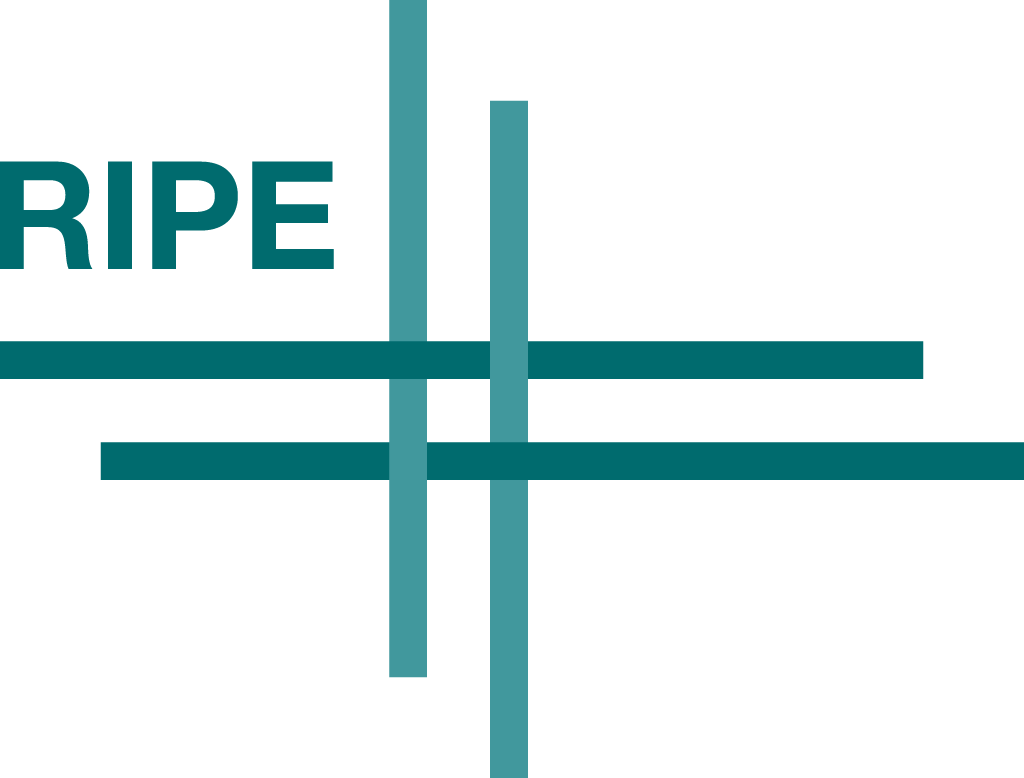The RIPE Programme Committee is responsible for ensuring that the RIPE Meeting programme consists of interesting, relevant and inspiring content. We recruit, select and schedule the plenary of the RIPE Meeting.
Contact the RIPE Programme Committee: pc [at] ripe [dot] net
Biographies

Osama I. Al-Dosary
MENOG Representative
Osama Al-Dosary has 18 years of local and international industry experience. He currently works for VMware’s Networking and Security Business Unit covering MENA. He joined VMware in 2013, designing solutions to meet technical objectives and developing visions, strategies and roadmaps.
Previously, Osama worked at Cisco Systems for eight years with various roles including as a consultant in Cisco’s Emerging Technology Group. He has actively volunteered in various educational initiatives and industry associations.
Osama holds a Masters of Science in Computer Networks from the University of Southern California and a Bachelor’s degree in Electrical Engineering from King Saudi University.
He enjoys reading, presenting and cycling.
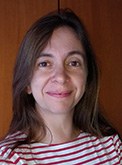
Maria Isabel Gandía Carriedo
PC Vice Chair
Maria Isabel Gandía began working with networks in 1997. She began as a trainee at a non-profit organization called CESCA and evolved to a Network Technician, a Network Expert, a Technical Leader and finally the Head of the Networking Unit at CSUC, the Consortium for University Services in Catalonia.
At CSUC, she is also an ITIL expert and she manages the regional research and education network in Catalonia, Anella Científica and the internet exchange, CATNIX.
On the world of research and education, she has participated as an organizer, speaker or program committee member in several Géant and RedIRIS task forces and working groups like SIG-NOC (Special Interest Group for Network Operation Centers). Regarding the internet exchange, she collaborates as part of the Benchmarking Club for the Euro-IX association. She is also an active member and an organizer of the ESNOG (Spanish Network Operators Group) meetings.
Her main topics of interest are network monitoring, BGP routing, DNS, IPv6, multicast and network operations improvement.
One of her hobbies is to help artists to work with the network. She has helped organizing multisite performances and master classes from Barcelona, and she has also participated in several editions of the Network and Performing Arts Production Workshop with collaborators from Internet2 and Géant, among other amazing people.
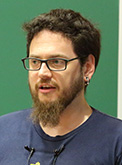
Peter Hessler
Peter Hessler is a developer with the OpenBSD project and is involved
with OpenBGPD.
Working with computers for 20 years, Peter comes from helpdesk and Unix
System Administration. He has been involved in most aspects of the
networking industry since 2008, including technical support, vendor and
operations.
Peter’s interests include BSD-licensed open source, urban exploring,
and combining protocols in unexpected ways.
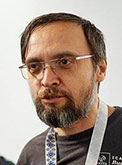
Dmitry Kohmanyuk
Dmitry Kohmanyuk graduated in 1992 from the Cybernetics Department of Kiev Taras Shevchenko University in Kiev (then Soviet Union, presently Ukraine), receiving a Masters Degree with honors.
He now resides in Kyiv (Kiev), Ukraine and works as Chief of Strategy of Hostmaster Ltd, the registry for the .UA domain. He actively participates in the Internet community, attending local, regional and international forums, including RIPE, CENTR, ICANN, IGF and other meetings.
Dmitry speaks Ukrainian, Russian, and English (with a small set of Dutch words if needed.)
Dmitry has direct operational experience with networked Unix systems and router equipment, co-founding and running one of first Ukrainian ISPs back in 1991 (Communication Systems). His work included several technology start-up companies in the United States in the role of systems administrator, developer support and operations. He can write code and shell scripts, was a co-author of RFC 2319 and participated in the Ukrainian Unix Users Group.
He has been directly involved with Ukrainian ccTLD registration and operation since 1996, in both non-commerical and commerical forms, and continuously represented ccTLD with IANA. He sits on the board of Hostmaster. In the last two years, the local policy development process has restarted, community service has improved, IDNs have launched and operational migration to IPv6 was completed, as well as DNSSEC launch in March 2012.
Non-profit work includes IPv6 as well as DNSSEC promotion in the region, participating in UA-IX as a member of the technical committee and speaking with press to communicate about Internet technology, security and privacy issues. Two IGF-UA forums in Ukraine in 2010 and 2011 were organised with support from Dmitry and Hostmaster.
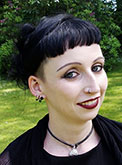
Franziska Lichtblau
Franziska is working as a PhD student in the field of Internet Measurement at TU Berlin. Her main focus is on inter-domain traffic measurements, IXPs, security and Internet infrastructure. She has a background as system administrator and is active in the free software community.
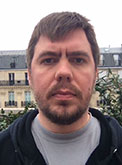
Pavel Lunin
ENOG Representative
Pavel is Network Product Manager at Scaleway, based in Paris. He has been engineering networks since 2003 and leading teams and projects since 2009. Before moving to France in 2015, he was CTO and co-founder at Senetsy, based in Moscow, Russia.
Pavel’s professional interest is everything around SP and DC networking, mainly focused on routing, BGP, MPLS, the SDN and automation buzz, as well as the management aspects of computer networking business.
He is also a member of the ENOG Programme Committee and serves as its representative on the RIPE PC.

Brian Nisbet
PC Vice Chair
RIPE Working Group Chair Representative
Brian Nisbet is the RIPE Working Group Chairs representative on the RIPE Programme Committee. He has been active in the RIPE community since RIPE 48 and he currently co-chairs the Anti-Abuse Working Group. His day job is Network Operations Manager for HEAnet, the Irish NREN, where he mostly makes sure the packets are flowing in the right direction.
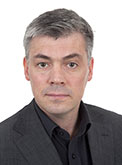
Örn Orrason
Host Representative

Benno Overeinder
PC Chair
Benno Overeinder is managing director of NLnet Labs. NLnet Labs is a non-profit research lab whose mission is to build a bridge between academic results and practical deployment of new technology in our networks. In this context, Benno is particularly interested how results from research have practical and operational implications on how we run our networks.
Before joining NLnet Labs in 2007, Benno obtained his MSc. and PhD. in Computer Science from the University of Amsterdam, the Netherlands. Until 2001, he was a researcher at the University of Amsterdam, and from 2001 to 2007, he worked as an assistant professor at the VU University Amsterdam. His topics of interest were parallel and distributed computing, run-time support and middleware systems, grid computing and resource management, intelligent autonomous systems and autonomic computing and networking.
At NLnet Labs, Benno’s topics of interest are Internet infrastructure stability and security, and the interplay between (open) standards, software development, operational practices, and policies and governance. The main focus is on two key components that turn a network of networks into an open Internet for all, namely DNS and BGP.
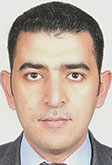
Khalid Samara
Khalid is a telecommunications and ISP expert with extensive experience in Internet, mobile, engineering and security technologies. He has acquired over a decade of experience in network planning, operations management, security and telecommunications policy development.
Khalid currently serves as PC Chair of the Middle East Network Operators Group (MENOG), an international forum dedicated to elevating communication and awareness about Internet best practices. Having been actively involved in providing consultation and advice to ISPs in the Middle East and Arab region, Khalid concentrates specifically on network strategies, design, Internet technology, and operations, as well as configuration and training. He has played a major role in training Middle East ISP and network engineers through MENOG roadshows and conferences.
Khalid is based in Jordan. Prior to his current role with ORANGE Telecom in the field of information security, he worked extensively with several regional and international telecom/ISP operators and has come to be considered a well-known face in the Internet industry in the Middle East.
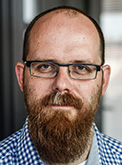
Ondřej Surý
Ondřej Surý is a Technical Fellow at CZ.NIC, the .CZ domain registry. He focuses on the domain name system, Internet protocols andsecurity. He is currently responsible for Knot DNS and Knot Resolver projects (free-software DNS servers). He previously held the position of CTO at CZ.NIC where he helped build and launch Fred, the new registration platform for .CZ. He also founded and led CZ.NIC’s R&D department. and founded and led the R&D department.
Ondřej is one of the RIPE NCC Arbiters and a member of ICANN’s RSSAC Caucus and Registry Services Technical Evaluation Panel. He also participated in the first ICANN KSK Ceremony as one of the seven Recovery Key Share Holders for DNSSEC Root Zone Key. Ondřej is a free-software enthusiast promoting use of free software, contributing to many free-software and open-source projects himself.
Ondřej holds a BA degree in psychology/sociology.
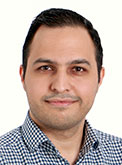
Alireza Vaziri
In 2003, Alireza Vaziri stepped into the Internet industry as the technical support of an ISP. It was around 2006 that he found his interest in network and system engineering. He worked with different ISPs and organisations as a System/Network Administrator until 2016 before going into cybersecurity. Back in those days, many ISPs in the Middle East were facing Internet abuse and attacks, so botnets and DDoS caught his attention as a challenge of the region.
Alireza has spoken at several conferences, including RIPE and MENOG Meetings, on the reduction of abuse in networks. He is currently helping Local Internet Registries reduce their network attack surface and protect themselves from modern attacks. Alireza also serves as Co-Chair for the Anti-Abuse Working Group and he deeply believes that most of the security-related issues could be addressed during RIPE Meetings with the help of people from different regions.

Jan Žorž
SEE Representative
Jan Žorž started his professional career in the RS-232/VAX VMS world in 1992 and continued through Novell and Windows environments all the way to Solaris and other UNIX derivatives that represent the native environment for the majority of his projects.
Jan is one of the pioneers of SiOL, the Slovenian national ISP, and has been involved in the organisation from the beginning. Among other activities, he began experimenting in 1997 with Internet streaming multimedia content. Based on these experiments, he successfully accomplished projects such as “Dhaulagiri ’99 Live” (an Internet multimedia transmission of Tomaz Humar’s solo climb of the south wall of Dhaulagiri (called Death Zone) in the Himalayas), “Ski Everest Live 2000” (an Internet live-video transmission and monitoring of extreme skiing from the summit of Mt. Everest by Davo Karnicar) and other similar projects. Together with two other members of team “Dhaulagiri ’99 Live”, Jan received a media award/statue “Victor” for special achievement.
For the last seven years, Jan has been working as a consultant in the IT field, specialising in IPv6. He co-founded the Go6 Institute (not-for-profit), a Slovenian IPv6 initiative whose main objective is to raise IPv6 awareness in Slovenia and alert the community to the fact that we are approaching extensive changes on the Internet.
Due to the Go6 Institute, Slovenia is currently leading the EU as the country most prepared for IPv6 (according to the RIPE NCC’s IPv6 RIPEness study). Jan has been invited to present around the world on his work, the model of the Go6 platform, and IPv6 awareness raising and deployment at the national level. These speaking engagements have included conferences such as many RIPE Meetings and the Google IPv6 Implementors Conference 2010, Internet Governance Forum meetings, World IPv6 Congresses in Paris and London as well as national forums in Germany, Greece, Norway, Macedonia and many others.
Jan is also primary co-author of very successful procurement (specification) paper, published as an official RIPE Best Current Practice document RIPE-501, entitled “Requirements For IPv6 in ICT Equipment”. This document is translated into more than 10 languages and is used around the world by enterprises and governments when requesting IPv6 in ICT equipment purchases. RIPE-501 was recently replaced by RIPE-554, also co-authored by Merike Kaeo and Sander Steffann.


